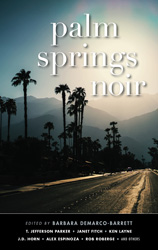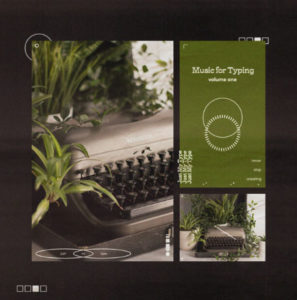I’ve known Jo-Ann Mapson a long time and I always love to hear her take on things. She has published eight books of mainstream fiction as well as many freelance articles, national book reviews, and has been included in several anthologies. Blue Rodeo, one of my favorite books of hers, was made into a CBS television movie starring Kris Kristofferson and Ann-Margret. Hank & Chloe, The Wilder Sisters, and Bad Girl Creek, were national bestsellers. She teaches in the MFA program at the University of Alaska at Anchorage.
BDB: You have had a number of novels published. You’ve been prolific–even before your first novel when you were working, raising a child…. What do you account for this?
JM: I have always known I wanted to write, and thus have made room in my day for writing, even if just for a few minutes a day. Working part time—my husband sometimes worked freelance in addition to his regular job—was a help, as were times our son was in school. To write toward any kind of goal—be it short story, poem, novel, or memoir, sacrifices have to be made. Television, reading the newspaper every day, socializing. Give up one or two of those and a chunk of time is waiting.
BDB: So many people can’t find the time. What do you say when a writer says this to you?
JM: I used to say “that’s nonsense,” but now I recognize that some people are simply not ready to face up to the commitment that writing demands. Some people are not ready to be so introspective, or to slog through the boring stuff to get to the few minutes of magic. Lately, I recommend your book, Pen on Fire. If they can’t find the time after reading how to claim minutes for writing, perhaps they don’t really want to write.
BDB: You’ve been teaching at the University of Alaska for–what? two years? three?
JM: This is my fourth year teaching in the MFA Program in Writing. It is an incredible job, fun, challenging, and sometimes frustrating. It is so exciting to be with writers making such big strides. I get to see the light come on. The moment they know one truth or another about their writing. It’s indescribable.
BDB: How does teaching help (or hinder) your own writing?
JM: I learn a ton from my students. Their work informs me as a writer. Their comments, critiques, and papers often lead me into directions I might not otherwise have taken.
BDB: How do you teach writing?
JM: It depends on the course. In workshop, I explain how to critique, and we read, talk, and sometimes do exercises. In 490—the Craft of Fiction—I often focus on one aspect of writing, such as narrative, and we read books and discuss them while closely examining the chosen area. We also write several stories. In Form & Theory, a difficult class to teach, we examine form and the theories that led up to that form. For example, this semester we are looking at love and death in the American novel. Leslie Fiedler’s book of the same name is fun and irreverant. Some of the books we are reading include : The Time Traveler’s Wife; Leaving Cheyenne; Little, Big; Lawnboy; Fingersmith. Each are quirky books about love and dying. Since those topics are huge in terms of writing, it’s fun to examine them and try to emulate the process.
BDB: I would assume that your MFA helped you land your stellar teaching position. You were writing, prolifically so, for years before you got the MFA. Are MFAs necessary, do you think to getting novels published?
JM: Absolutely not. I got my MFA because I was tired of working crappy jobs. I wanted to teach. I knew it would strengthen my writing as well, and it sure did, but my primary aim was teaching at the college level. In some ways the MFA allowed me to experiment in ways I might not otherwise have. I had already written a novel that did not sell (thank God), and I tried writing another while in the program. It turned out to sell just a few weeks after graduation. But an MFA is not a guaranteed entrance into publishing. My friend Earlene Fowler is a prime example. She has no MFA. She has a career because she pushed herself to write and it paid off.
BDB: Any other words of wisdom you might offer?
JM: Read like crazy. Become an astute reader, one who moves beyond getting lost in the story to one who asks, “how did she do that?” I tell my students to break things down to syllables if necessary. Be open to your experiences. Listen, eavesdrop, tell lies in your writing in order to get to the truth underneath. But mostly it is a matter of sitting your behind down in a chair in front of the computer and putting your fingers on the keys. One thing that is essential—and hard to explain—is learning and nurturing intuition. It’s an essential writer’s tool, that kind of knowing. To foster it, you have to come to reading and writing without judgment. You have to listen with your soul, I think. Pretty soon, you will recognize things in your own work that don’t ring true. Then you have to listen and change things.
Jo-Ann’s Web site is www.joannmapson.com.



 Support Indie bookshops and this site by purchasing books through my BookShop
Support Indie bookshops and this site by purchasing books through my BookShop
